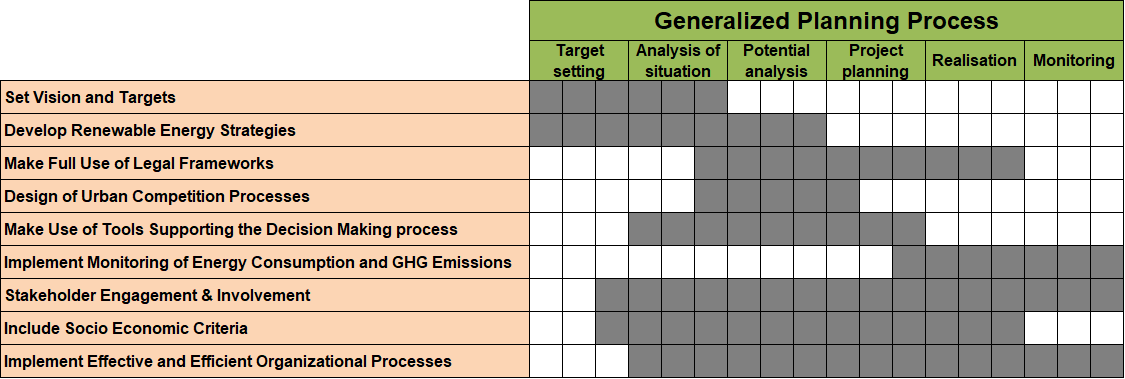IEA EBC Annex 63: Implementation of Energy Strategies in Communities
Short Description
Around two-thirds of global CO2-emissions are generated in the urban area. Cities are thus key players in achieving national and international energy and climate change objectives. For municipalities to successfully carry out their tasks, greater awareness of energy planning as a municipal task and a link with other municipal planning processes are needed.
The main objective of Annex 63 was to develop recommendations for the successful implementation of energy strategies in communities. Recommendations for urban planners and decision-makers were developed by an interdisciplinary project team based on analyses of the status quo of methods, instruments, planning processes and best-practice examples.
The active involvement of Salzburg, Vienna and Graz during the project period ensured a close link to Austrian practice. Since the combination of different technologies at the municipal level and the link to required implementation tools is the core issue of integral planning, the exchange of information with other players was another major focus of the activities (energy supplier, researchers).
The results were documented on the one hand in form of reports on methods, planning procedures and best practice examples. In addition, practical work materials tailored to urban needs were created (e.g., self-assessment tool). The conclusion is a summary of the expert group on recommended practices and methods.
For the successful implementation of strategies at the municipal level it is necessary to work on nine strategic measures. The steps to be taken depend on the local conditions. Usually, the strategic measures are of particular importance, especially in the following planning steps.
To facilitate the assessment of the status quo in the current planning processes, a self-assessment tool is available. Experiences from the analysed case studies have shown that only an iterative consideration of strategic measures and stakeholder interests leads to a successful integration of energy and urban planning.
Participants
Austria, Canada, Denmark, France, Germany, Ireland, Japan, the Netherlands, Norway, Switzerland, United States of America
Contact Address
SIR – Salzburg Institute for Regional Planning and Housing
Helmut Strasser
Schillerstraße 25, 5020 Salzburg
E-Mail: helmut.strasser@salzburg.gv.at

